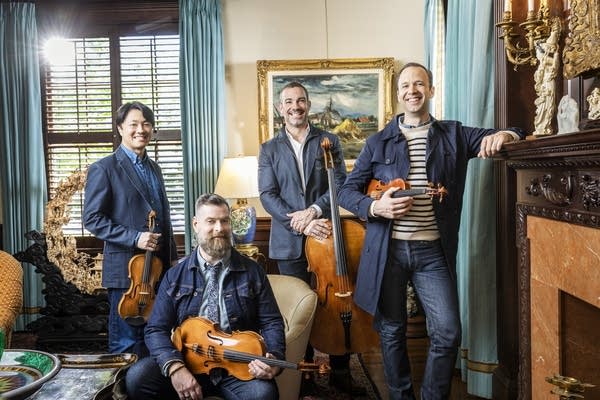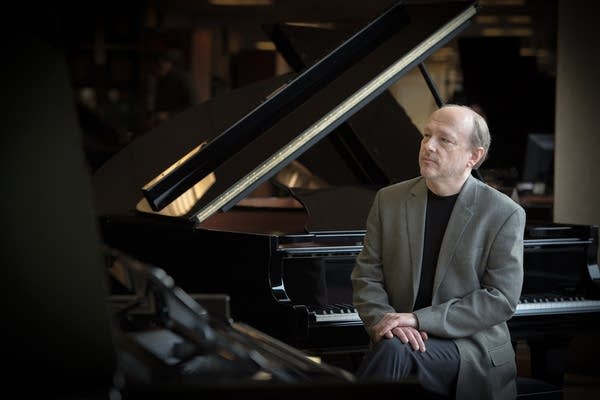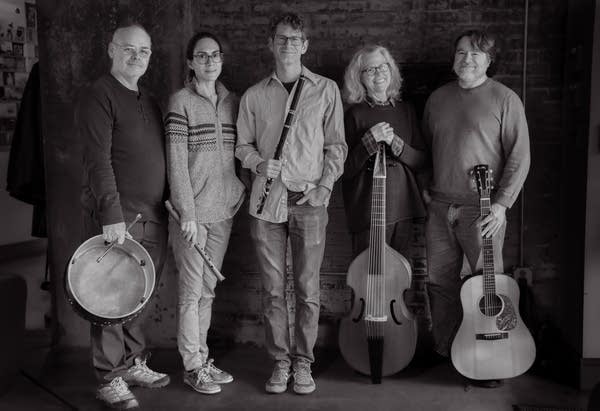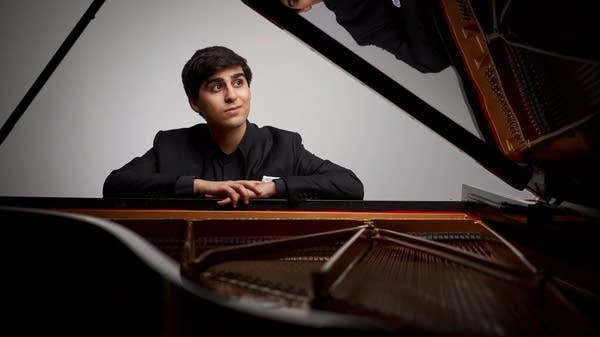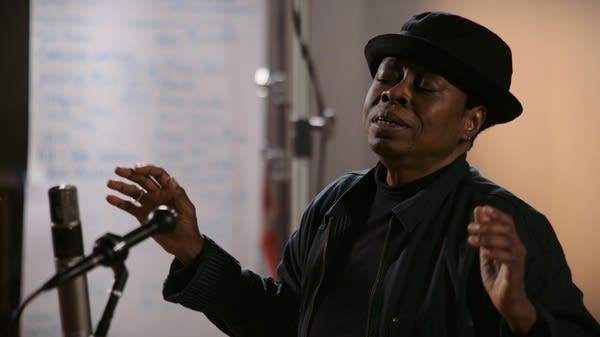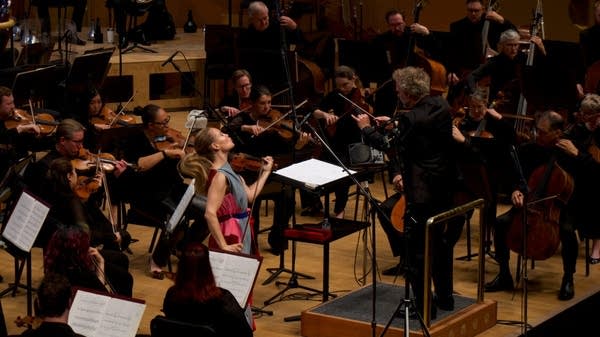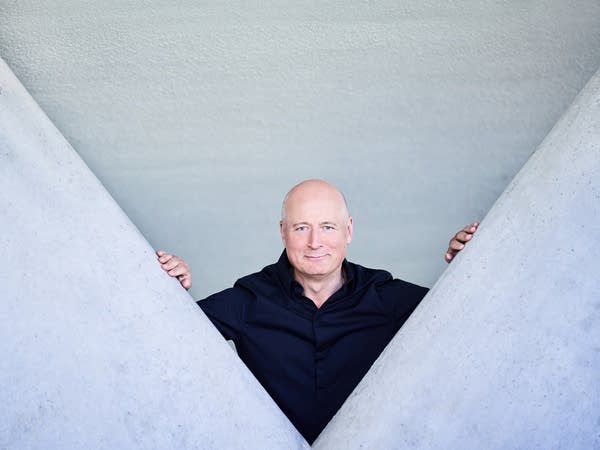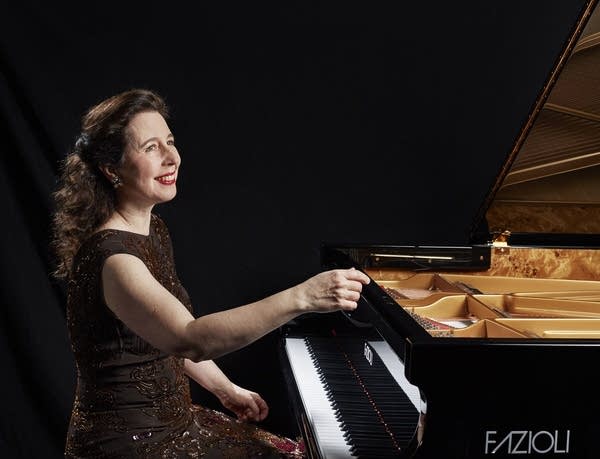Stile Antico - A Wondrous Mystery (Harmonia Mundi)
"To be honest, we've been together for such a long time I think the whole group feels like family, really," says Kate Ashby, one of three sopranos in the choral chamber ensemble, Stile Antico, means that figuratively and literally. Kate and two of her sisters are among the 12 singers who make up Stile Antico. The group formed when most of the members were students at Cambridge University, so Kate says they've been together for a long time. "And we turned professional in 2005 so we're celebrating 10 years of being a professional ensemble this season," she says. "We've just released our tenth disc for Harmonia Mundi, which is a program of Christmas music from Flemish countries and Germany, and it's full of some wonderful Renaissance polyphony."
The term "stile antico" literally means "in old style." This ensemble specializes in music of the 16th and 17th centuries, which according to Kate, is a perfect fit for the group. "It is, by nature, very democratic music," she says. "There's no one voice that's leading — all the voices are equally involved. And it's the beauty of the way the parts weave in and out and how they interact that is how the magic unfolds."

At the heart of this magical new Christmas disc, titled A Wondrous Mystery, is a work that's rarely heard. "It's based on a mass by a wonderful Flemish composer called Clemens Non Papa," Kate explains. "He was called Jacobus Clemens because there was a Pope Clement at the time. He was known as 'Clemens Non Papa' — 'not the Pope.' Although apparently it seems to have been an ironic nickname — he was apparently unpriestly in his behavior."
"His mass is a fantastic reinterpretation of his motet," Kate continues. "It's what known as a parody mass. It's based on a motet he wrote for Christmas, about the shepherds seeing angels and telling people about what they'd seen in the sky, angels telling people that Jesus would be born. And that motet is full of lots of drama. It's quite a short piece but he manages to encapsulate all sorts of different emotions in this short piece on a Latin text.
"Then taking the musical themes, he reworks them into a mass setting, with the Kyrie, Gloria, Credo, Agnus Dei … the regular texts in a mass setting, but using the musical themes from the motet — quite a common technique in Renaissance times.
"The Kyrie is in some ways my favorite movement," Kate says. "It feels so different from the motet. So it's, 'Lord have mercy on us' — it's quite an extended mass movement. And full of prayerfulness and humility and completely different in feeling from the motet, in many ways.
"And the Credo is just full of lots and lots of inventive twists and turns as he goes through the whole setting of the creed, the longest text in the mass. And he plays with its textures as well, so there's a section with just the three upper voices … he tries to get as much variety into these long text passages as he can."
Kate says it was common during the Renaissance for composers to intersperse familiar carols throughout the sacred sounds of the mass to enhance the Christmas atmosphere. "So it makes it amazingly festive and you have this rather austere plainchant and polyphony, and suddenly you get this joyful carol, which is great fun," she says. "And in some ways, it reflects what we've done on the disc, interspersing the Latin text and mass with some German carols that people will probably recognize the tunes."
"Mary Goes Over the Mountains" is a less familiar piece yet it, too, is filled with the Christmas mood. "It's a beautiful piece, a very intimate motet about Mary going to visit her cousin Elizabeth [who] quotes the Magnificat," Kate explains. "It's beautiful. It has quite a big range. Quite a high treble part, the soprano part … very much a tune with accompaniment. But at the end, it sort of folds into this intimate little ending which is I think so cozy and cuddly … it's a beautiful little ending to the piece."
A Wondrous Mystery with Stile Antico closes very serenely with a movement from the centerpiece of the recording, the mass by Clemens Non Papa. "The Agnus Dei is often the movement that inspired the most beautiful polyphony in Renaissance composers, and I think this Agnus Dei is equally beautiful," Kate says. "I always find it unusually short, given the length of some of the other movements, but he really creates this beautiful sense of peace at the end, which is lovely."
Love the music?
Show your support by making a gift to YourClassical.
Each day, we’re here for you with thoughtful streams that set the tone for your day – not to mention the stories and programs that inspire you to new discovery and help you explore the music you love.
YourClassical is available for free, because we are listener-supported public media. Take a moment to make your gift today.
Your Donation
About New Classical Tracks®
Host Julie Amacher provides an in-depth exploration of a new classical music release each week.
Subscribe on Apple Podcasts, TuneIn, Radio Public, or RSS.



